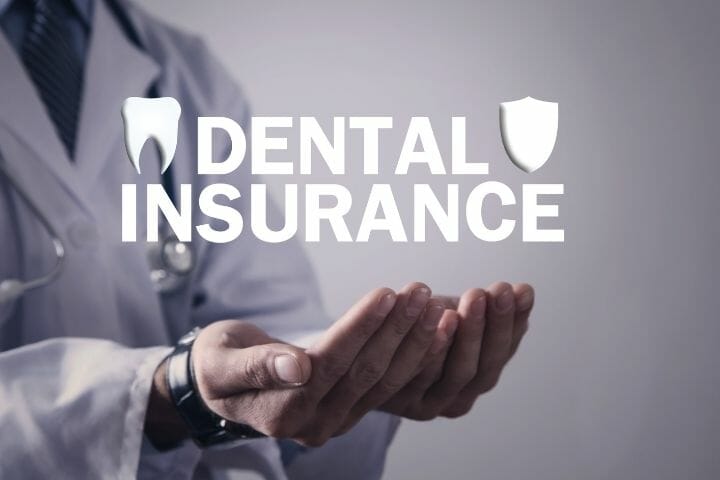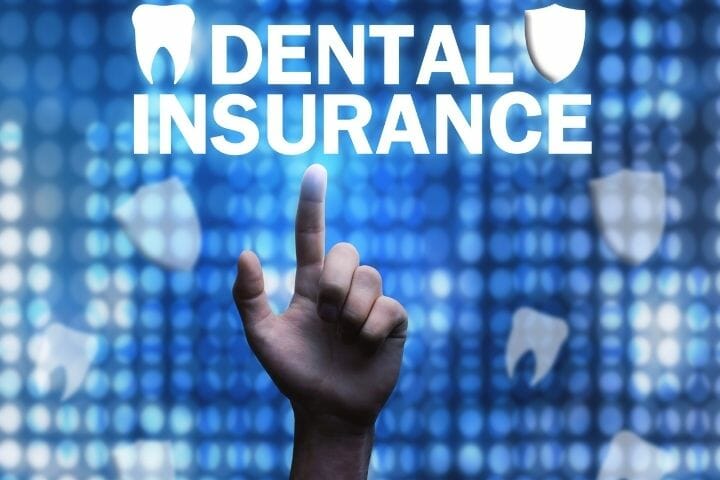Do older adults need dental insurance? Is it not covered in Medicare? We answer these and other questions on dental insurance for seniors in this guide
Contents
It should go without saying that our bodies demand more care and consideration as we get older. This is particularly true when it comes to one aspect of our hygiene that we cannot afford to ignore: the way we care for and maintain our teeth.
Most dental treatment isn’t covered by Medicare, which is why almost 10% of seniors don’t get the care they need to keep their mouth healthy.

There are specialized dental insurance policies for the requirements of the elderly to fill the void left by the Original Medicare. Read on for information about dental insurance in this comprehensive dental insurance for seniors guide.
What Exactly Is Dental Insurance?
You may save money on standard and unexpected dental treatment with the aid of a dental insurance plan. Dental insurance, like healthcare coverage, is a recurring monthly expense.
In addition to coinsurance and deductibles, there may also be annual restrictions on the amount that may be charged. Restorative, Preventive, and orthodontic treatment are the three basic categories of dental insurance.
Preventive care or more complicated procedures like implants, bridges, or even dentures should be covered by your dental insurance plan.
Dental coverage is commonly provided by your employer, but you may also buy a plan on your own. When it comes to cosmetic dentistry, most dental insurance plans do not cover treatments such as tooth whitening, braces, or veneers.
You might like to read: Dental Phobia In Seniors
Do You Need Dental Insurance as a Senior?
It’s not only your teeth that are affected by dental disease. Dentures and tooth loss might limit what you can consume since they restrict what you can eat. Aside from tooth decay, gum disease may also raise the risk of cardiovascular diseases (stroke, heart attack, and diabetes), as well as dementia.
In addition, dentists are critical in the early diagnosis of oral cancers. The importance of proper dental care cannot be overstated, and as you get older, your dental demands will only grow.

Is There a Medicare Dental Plan for the Seniors?
Original medicare does not care for dental benefits. However, seniors may choose from a variety of different Medicare Advantage dental plans. Vision, dental, and prescription medication coverage are common perks in Medicare Advantage plans.
Because they work in conjunction, your Medicare Advantage premium would include any premiums you incur for dental care. It’s important to know that most dental insurance plans only cover basic preventative care like cleanings, examinations, x-rays, and fluoride treatments.
Consider purchasing stand-alone dental insurance for additional coverage. Medicare does not have to be involved in the coordination of stand-alone dental coverage plans for the elderly marketed by commercial insurance firms. Stand-alone policies will have a separate payment, although the coverage they offer may be deemed reasonably priced.
Important Dental Insurance Terms To Know
You should be aware of the numerous terms used in the dental insurance industry and how they relate to your coverage if you are contemplating obtaining dental insurance. Having this information will assist you in locating the most appropriate dental insurance for your needs.
What is a deductible?
Dental insurance deductibles function similarly to health insurance deductibles in that you must have to pay a certain sum before your insurance coverage kicks in.
Even if your deductible is $600 and the operation would only cost $400, if your dentist informs you that the operation will cost the whole amount, don’t be shocked. Deductibles are typically annual in nature, and if you don’t need further care in the rest of the year, you will get the $400 credit.

On the other hand, if the treatment costs $12000, you pay $600 while your insurance pays the rest, less whatever coinsurance your insurance may provide.
The size of your deductible affects your monthly premiums. Therefore it’s critical to know how much it is. There is a direct correlation between deductibles and rates.
What is coinsurance?
Coinsurance is an additional method of splitting the bill with your insurance carrier. At first glance, the expense of coinsurance may seem absurd, but in actuality, it aids in lowering your overall expenditures. Because you pay for what you use, it reduces your insurance costs.
Coinsurance is calculated as a proportion of the insured’s policy value. Depending on your coverage, your coinsurance contribution might range from 25% to 55%.
Let’s imagine you have a $600 deductible and $1200 in dental procedures to be done. You must pay the $600 difference in full upfront. The coinsurance kicks in at this point. If your coinsurance is 25%, you will be responsible for paying a further $150 while the insurance provider will cover the rest $450 of the claim.
What is a waiting period?
Insurance and comparable services may have waiting periods from time to time. Individuals would only buy things if they were really necessary. Dental insurance, like the majority of other forms of insurance, is sometimes subject to a waiting period.
These time frames might range from one month to a full year from the moment you join up. Certain treatments are not insured during this time. However, basic checks and essential dental treatment are often covered.
Both the Insurer and the insured benefit from waiting, even if the policyholder finds it prohibitive at first. Health insurance coverage must be in effect at all times, not simply in times of need. For this reason, dental insurance is so reasonably priced in the first place.

What Usually Is Covered By Dental Insurance?
For the most part, dental insurance policies begin with a standard list of covered and excluded services.
Included Commonly
- Crowns
- Root canals
- Simple extractions
- Cleanings
- Fillings
Excluded commonly
- Dentures
- Implants
- Veneers
- Braces
- Aligners
Orthodontic coverage
You may or may not be covered for orthodontic treatments like braces or aligners if you have dental coverage. To discover if your insurance plan includes orthodontics or not, all you have to do is inquire. Policies that include orthodontic care will be more expensive than standard plans.
Types of Dental Insurance Plans
There are a variety of dental insurance policies, just as there are a variety of health insurance policies. The following are the most common ones:
- Dental Preferred Provider Organization
- Dental Health Maintenance Organization
- Dental indemnity
Here are some additional specifics about the various categories. Each insurance is distinct in terms of what they include and what they don’t.

What is a PPO plan for dental care?
Dental insurance companies offer a DPPO plan, the same as PPO coverage. DPPOs do not oblige you to pick a dentist from their community, but going outside the network would cost you more money. It is also not necessary for you to select a primary care dentist. Eighty-two percent of dental plans are DPPOs.
DPPOs have yearly deductibles and coinsurance like any other kind of coverage. Once you reach your deductible, most in-network services, including cleanings, examinations, and X-rays, are covered at 100%. Cost-sharing is also a common occurrence.
It’s ideal for: DPPOs are the best option for folks who don’t object to paying extra to have more flexibility from their coverage. A DPPO is a good option if you like to see the dentist of your choice.
What is an HMO plan for dental care?
If you’re searching for a more affordable alternative for dental insurance, dental HMO plans are an excellent choice. Dental health maintenance organizations (DHMOs) are more limited in terms of dentist selection, and they often do not allow policyholders to travel outside of the network.
Instead of more invasive operations such as root canals or dental implants, they concentrate primarily on preventive treatment, such as cleanings and checkups. In contrast to a DPPO, you must choose the primary dentist with a DHMO plan.
It’s ideal for: For those on a tight budget, DHMOs are the perfect option. These policies often have cheaper rates and no deductibles.
When it comes to diagnostic or preventive treatment, copayments are seldom, if ever required. Referrals are necessary when seeing a specialist under a DHMO. DHMOs make for eight percent of all dental insurance coverage.

What is a Dental Indemnity Plan for dental care?
Even though DHMOs and DPPOs compose 90% of all dental plans, they both may demand that your dentist be in-network. A dental indemnity plan is the way to go if you want total control over your dental care.
These plans are ideal for individuals who already have a preferred dentist and wish to maintain their relationship with them. Dental indemnity refers to the freedom to choose who does your crowns, dentures, and Implants.
It’s ideal for: Affluent individuals are best suited for dental indemnity plans since they can afford to pay for their care. With dental indemnity, the goal is not to save money but to visit the dentist’s choice whenever you want.
This kind of insurance is often purchased by those who aren’t very frugal but want the greatest treatment available. Dental indemnity insurance generally covers 50% to 80% of all dental procedures.
Wrap Up
Insurance plans are legal documents, and the terminology in which they are written determines which benefits will be paid out.

Before purchasing insurance, thoroughly review the plan you are contemplating and ensure that you understand all terms and conditions. Remember to contact your broker or agent if you have any queries regarding the plan’s terms.
Please let us know if there’s anything you think we’ve missed or if you have any suggestions for how we can improve this guide. Please share it with others and mention us on your social networking sites if you appreciate the information.
